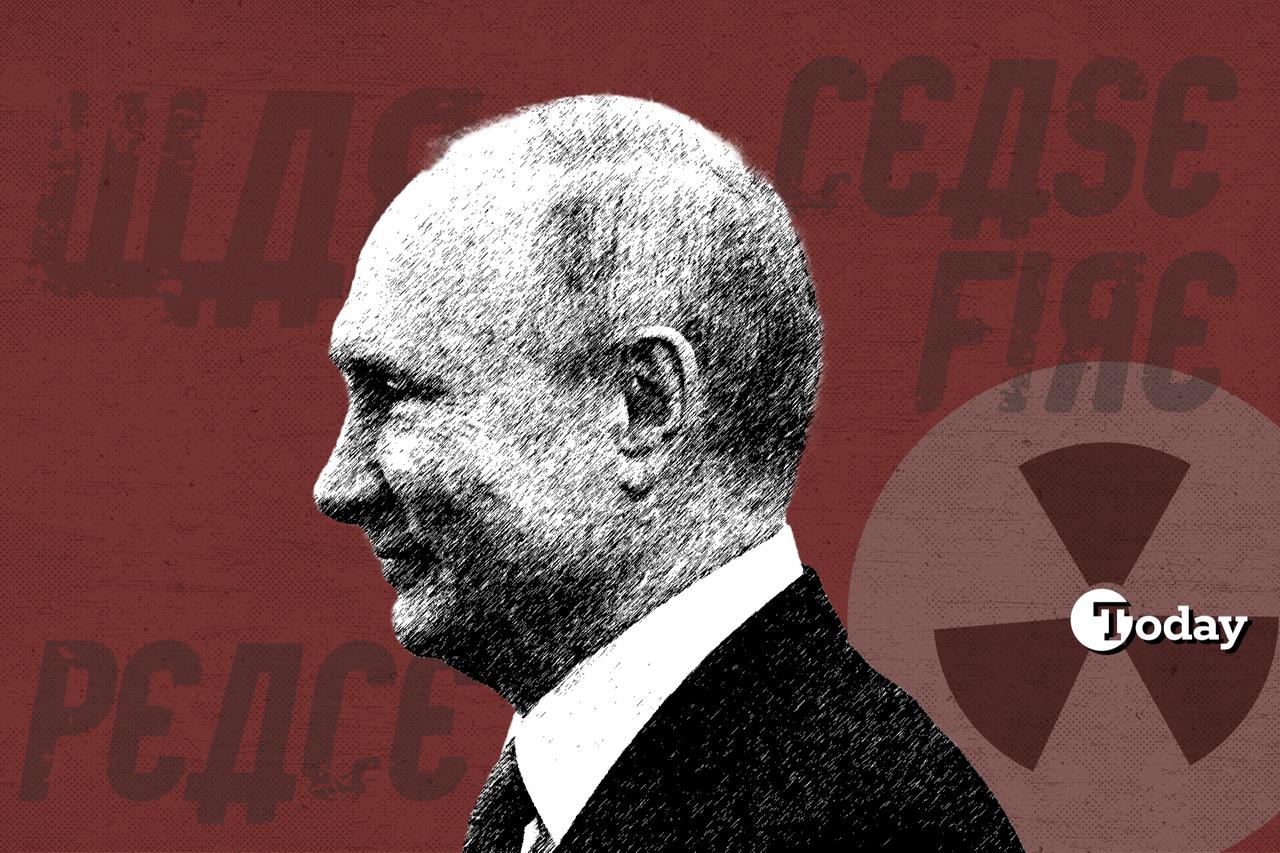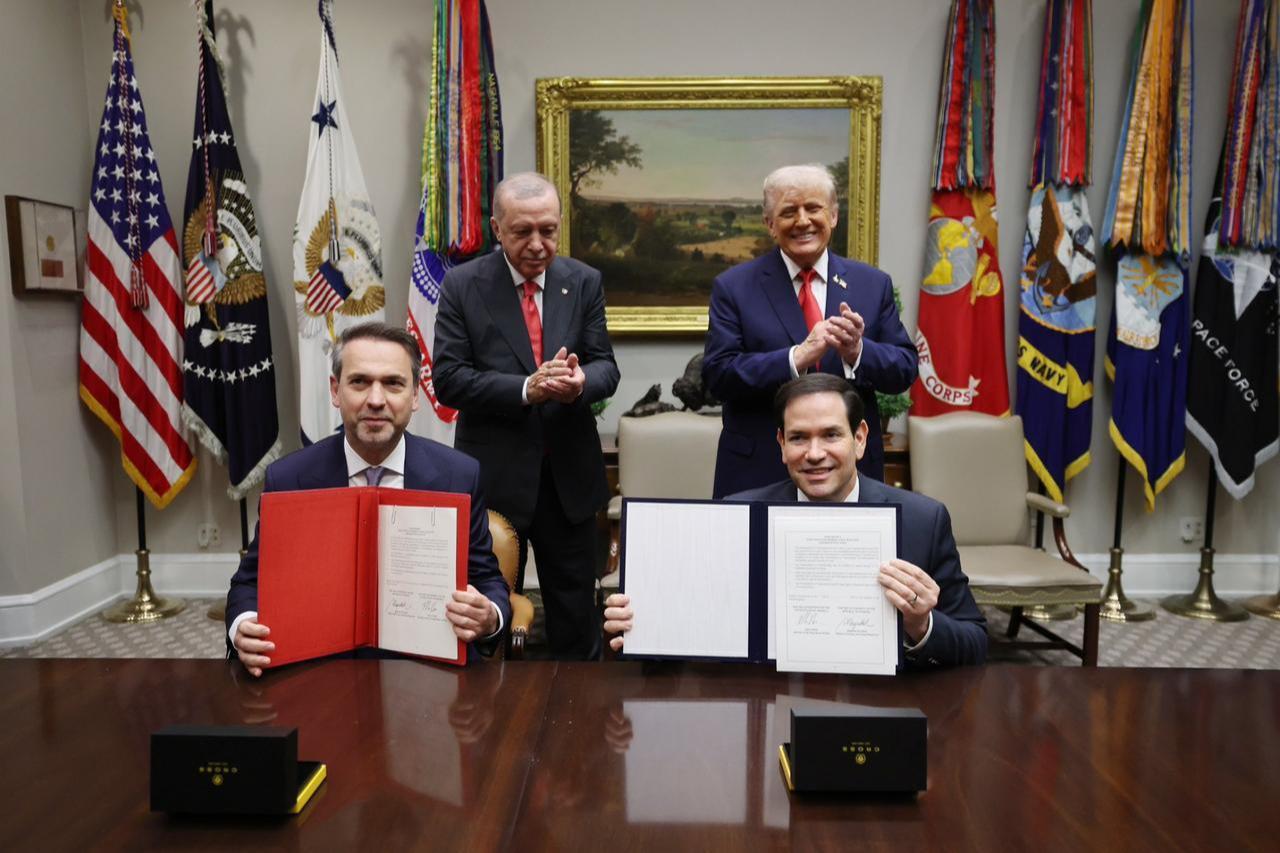
The recent meeting between President Recep Tayyip Erdogan and U.S. President Donald Trump at the White House lasted more than two hours, signaling both the weight of the agenda and the intention to produce concrete outcomes.
Trump’s gesture of accompanying Erdogan to his vehicle afterward, coupled with his brief “great” remark to reporters, was in an atmosphere of warmth and trust.
The high-profile White House meeting between Erdogan and Trump carried risks for multiple actors at every level.
A wrong step could have echoed back into Türkiye’s domestic politics, shaping debates at home. Turkish business circles were closely watching, anticipating potential trade opportunities. For U.S. giants like Lockheed Martin and Boeing, the talks held implications for future aircraft orders. On the regional stage, Greece monitored the encounter nervously, worried about shifts that could unsettle the delicate balance in the Aegean.
Yet none of these parties emerged as the meeting’s true casualty. Instead, the outcome in the White House pointed to a different conclusion: the true loser was Russia.
Through agreements and signals delivered during the talks, Moscow lost ground in energy, nuclear cooperation, defense ties, and even the diplomatic arena, where it once enjoyed a privileged position with Ankara.

One of the most striking announcements came in the nuclear energy sector. Energy Minister Bayraktar announced that Türkiye and the U.S. have signed a Strategic Civil Nuclear Cooperation Memorandum of Understanding, an agreement designed to deepen collaboration in nuclear technology.
This development marks a notable shift given that Türkiye’s first nuclear plant, Akkuyu, is a $20 billion project led by a company with majority Russian financing. The Akkuyu plant is scheduled to begin generating power in 2025 and reach full capacity by 2028, covering about 10% of Türkiye’s electricity demand.
With U.S. involvement now formalized, Russia’s dominance in Türkiye’s nuclear sector is no longer assured. While projects in Sinop and Kirklareli remain on the table, the latest U.S.-Turkish accord signals that future contracts may not automatically go to Russian partners.
Energy dependence was another central issue. Trump openly told Erdogan he would prefer Türkiye not to import oil and gas from Russia. This direct message reflects Washington’s desire to open space for U.S. LNG exports and gradually push Russia out of Türkiye’s energy equation.
For Ankara, reducing reliance on a single supplier has always been a strategic goal. Yet for Moscow, the prospect of losing market share in Türkiye—one of its largest gas customers—represents a significant economic and geopolitical blow, as Türkiye is a regional hub of energy and located at the center of many energy corridors.
The White House meeting effectively placed Russian energy influence under scrutiny, positioning the U.S. as a competitor not just in defense but also in energy markets.

The defense sector highlighted yet another reversal. Erdogan emphasized that energy and defense are priority areas in cooperation with the U.S. Trump confirmed that discussions included the F-35 and Patriot missile systems and expressed optimism about reaching an agreement.
Türkiye had been expelled from the F-35 program following its purchase of Russian S-400 systems, a deal that marked the height of Turkish-Russian defense collaboration. Yet the new tone in Washington suggests a pathway for Türkiye to return to the F-35 project, with U.S. Ambassador Tom Barrack hinting that the issue could be resolved by the year’s end.
If Ankara indeed secures access to F-35s or alternative advanced platforms through the U.S., Russia’s S-400 sale will stand as a one-off success rather than the foundation of a sustained defense partnership.
Beyond the technical and economic dimensions, the message was that the U.S.-Türkiye relationship can be rebuilt on a level of trust above partisan politics, laying the groundwork for a stronger alliance over the years ahead.
The ongoing war in Ukraine was also a focus of the talks. Trump stressed that Russia had suffered heavy losses without achieving territorial gains, underscoring Moscow’s weakened position. He also praised Erdogan as a respected and neutral figure who could contribute to ending the war.
International coverage highlighted this mediating role, framing Türkiye as uniquely positioned to engage both Kyiv and Moscow. Yet if U.S.-Turkish defense and energy ties deepen, Ankara’s neutrality may become harder to sustain. A tilt toward Washington’s camp would inevitably be read in Moscow as an erosion of the balanced approach Erdogan has sought to maintain since 2022.
These potential developments, especially in a scenario in which the war doesn’t stop, might make Russia lose some of the privileges it currently enjoys.

The meeting also carried implications beyond defense and trade. With Türkiye’s approval, the so-called 'Ecumenical Patriarch of Constantinople' would be effectively recognized in his “universal” capacity, as President Trump openly demanded it in front of the media in the Oval Office.
This move bypasses the Russian Orthodox Church’s longstanding claim to represent the world’s largest Orthodox community. The Patriarchate had earlier accepted the Ukrainian Orthodox Church under its authority, linking the development directly to the cultural and religious dimensions of the Ukraine war.
For Türkiye, stepping back from its traditional stance under the Lausanne Treaty—where it refrained from recognizing the Patriarchate’s 'ecumenical' status—means a shift in course, indirectly weakening Russia’s influence in the Orthodox world.
During the Biden administration years, Türkiye’s ties with Washington were heavily strained, opening space for Russia to expand its influence over Ankara. Trump’s doctrine now frames that as a policy failure, suggesting that ignoring Türkiye’s role as a regional power only pushed it closer to Moscow.
The White House summit left Russia weakened across multiple fronts: energy, nuclear power, defense industry ties, diplomacy, and even in the spiritual conflict. What remains uncertain is the scale of this loss.
The outcome now hinges on Washington’s ability to deliver on its promises. If LNG flows increase, nuclear cooperation expands, defense programs are restored, and sanctions are lifted, Moscow’s influence in Ankara will shrink dramatically. If not, Russia may still find room to recover. But for now, one conclusion is unavoidable: in a meeting that could have produced many losers, Russia emerged as the clearest one.